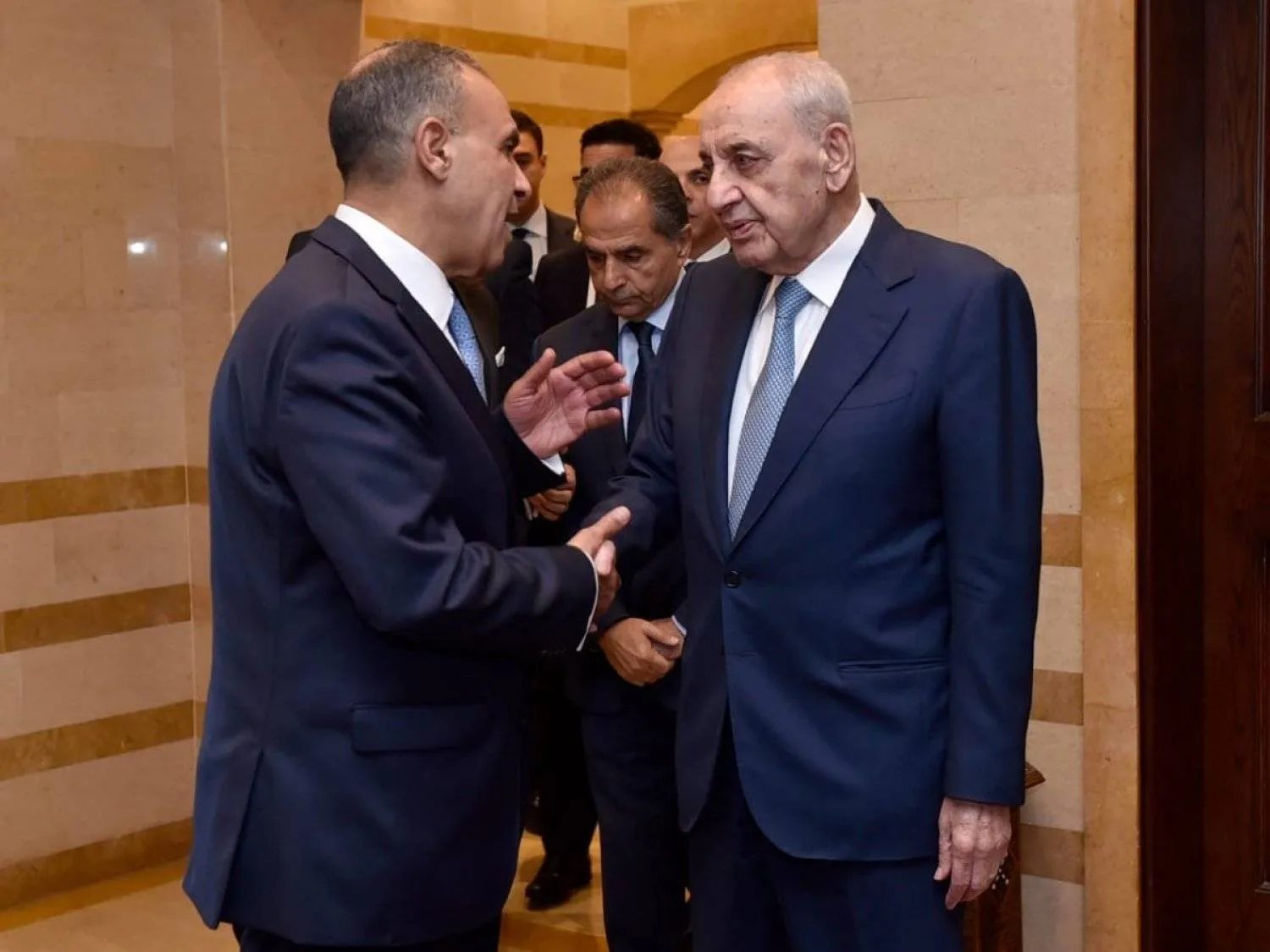Egypt's Foreign Minister Badr Abdelatty stressed on Wednesday that ending Israel’s aggression on Lebanon must take place as soon as possible, rejecting any “settlement” for a ceasefire that compromises Lebanon’s unity.
“The goal is one. Israel’s brutal aggression on Lebanon must stop as soon as possible”, said Abdelatty, rejecting any “notion or settlement for a ceasefire that compromises Lebanon’s unity.”
Abdelatty also rejected any suggestion that links the election of a president as a condition for a ceasefire.
The minister’s remarks came during a visit to Lebanon where he met senior Lebanese officials.
After his meeting with Parliament Speaker Nabih Berri, Abdelatty assured that “The top priority in all of Egypt's efforts is achieving a ceasefire without any preconditions...we continue our endeavors and diplomatic contacts to put an end to the aggression”.
In addition to other matters, his talks with Berri touched on the issue of the displaced people and refugees, on Lebanon’s internal stability, and ending the vacuum at the top state post.
The Egyptian FM also emphasized "the crucial role of the army in maintaining the state's cohesion," saying, "I met with (Army Commander) General Joseph Aoun, and we reaffirmed our strong support for the military.
"We discussed the importance of implementing Resolution 1701, and both President Berri and the Army Commander assured us of the state's commitment to its implementation, as well as the army's readiness for immediate deployment to ensure its fulfillment."
Abdelatty also met caretaker Prime Minister Najib Mikati. He assured during their meeting on Egypt’s unwavering efforts to stop the Israeli aggression on Lebanon, and the need to preserve Lebanon’s state institutions, mainly the presidential post.
With Mikati “we made it clear that resolving the presidential vacuum should not, and cannot, be tied to a ceasefire agreement. It must be driven by Lebanon's own national will”, stated the Egyptian minister.
He further emphasized, "I assured the Prime Minister of our firm rejection of any external pressures. No foreign country or entity has the right to impose who Lebanon's next president should be."
During his stay in Beirut, Abdelatty also met with former PSP leader Walid Jumblat, and held a phone call with Mufti of the Lebanese Republic, Sheikh Abdullatif Deryan.
Egyptian FM from Beirut: Ceasefire Proposal that Compromises Lebanon's Unity is Rejected

Lebanese Parliament Speaker Nabih Berri welcomes Egyptian Foreign Minister Badr Abdelatty.

Egyptian FM from Beirut: Ceasefire Proposal that Compromises Lebanon's Unity is Rejected

Lebanese Parliament Speaker Nabih Berri welcomes Egyptian Foreign Minister Badr Abdelatty.
لم تشترك بعد
انشئ حساباً خاصاً بك لتحصل على أخبار مخصصة لك ولتتمتع بخاصية حفظ المقالات وتتلقى نشراتنا البريدية المتنوعة







